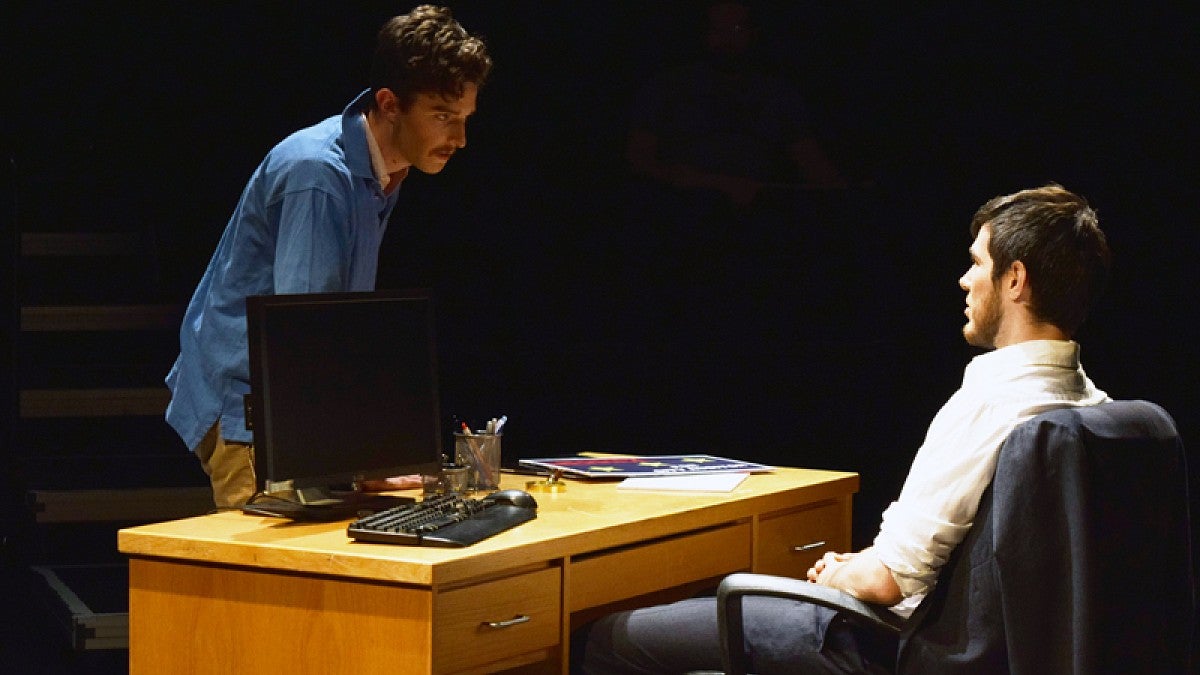Following its debut in July, Summer SOUP –– as in “Seat of Our Pants” –– is back in action and gearing up for its second production.
Summer SOUP is a new UO summer theater program founded by professors Nelson Barre and Tricia Rodley that gives students the chance to explore a different side of university theater, and the community the chance to see some free plays.
“We had the idea for it less than two months ago,” Barre said. “So it was a bit slapdash putting it together. But we’re really excited about doing new work to get the students and the community involved, topical things that keeps everyone interested.”
“Calling it Summer SOUP is sort of a playful way to say it’s condensed, and we’re putting it together in a flurry,” Rodley added.
It doesn’t currently offer UO credit for participation, but Rodley and Barre are looking to change that if the program continues in the future.
The program fills a couple gaps in Eugene’s summer theater scene. It gives people a chance to see new, different plays, and it allows students to participate in a sort of production that is rare during the regular theater season.
“There’s a couple of Shakespeare in the Park groups around, but very few people are doing contemporary stuff in the summer,” Barre said. “Most professional theaters shut down from June until September, but there’s still students who are around and want to be doing things.”
It’s the UO theater department’s first summer program since Mad Duckling Children’s Theatre, which produced children’s plays at the Amazon Community Center, ceased operations following the summer of 2015. Summer SOUP takes the same summertime philosophy, with student-driven productions and short, intense rehearsal periods, and directs it towards a more adult audience.
“There were more students here over the summer than we thought,” Rodley said. “And some of the folks are people who don’t do theater during the year because they aren’t theater majors, but they’re interested in it and this gives them a chance to explore that.”
Barre and Rodley are no strangers to nontraditional performances; Barre said he specializes in “nonrealism” and “absurdism,” and Rodley studies playwrights that use common language in a virtuosic way. Last year, they produced an extremely short-form performance –– about 15 minutes –– of Shakespeare’s “The Winter’s Tale.”
“Basically we worked on finding different images and visual cues to tell the entire story,” Barre said. “It’s one of Shakespeare’s stranger plays because it doesn’t quite make sense, and we thought it would be interesting to condense that in a workshop setting.”
They received such good feedback on that production that they wanted to keep the creative juices flowing, eventually resulting in Summer SOUP.
Summer SOUP’s second play is “Gnit,” written by Will Eno. Like the previous production, there will only be two weeks of rehearsal, much shorter than is generally given and fully embodying the “seat of our pants” philosophy. It will have two showings, on Aug. 25-26 at 7:30 p.m. in the Hope Theatre, with free tickets available at the door.
“Gnit” is a purposefully misinterpreted, Americanized version of Henrik Ibsen’s nineteenth-century Norwegian play “Peer Gynt,” which tells of a man’s selfish journey of self-discovery while casting selfishness as the opposite of love. Eno, who has never been to Norway, borrows from the original both literally — the main character stealing a bride on her wedding day — and not so literally — recasting trolls as real estate agents — to provide a fun, funny tale that doesn’t take itself too seriously.
The program’s first play, “The (Curious Case of the) Watson Intelligence” –– a 2014 Pulitzer Prize finalist written by Madeleine George –– opened July 28.
“They’re plays that are interesting to us, and they’re smaller-cast plays than are usually produced during our university theater season, so it was an opportunity to put on that sort of play,” Rodley said.
For more information on the program or the plays, visit the Facebook page or the summer theater section of the UO’s Department of Theatre Arts.
—By Noah Ripley, University Communications


